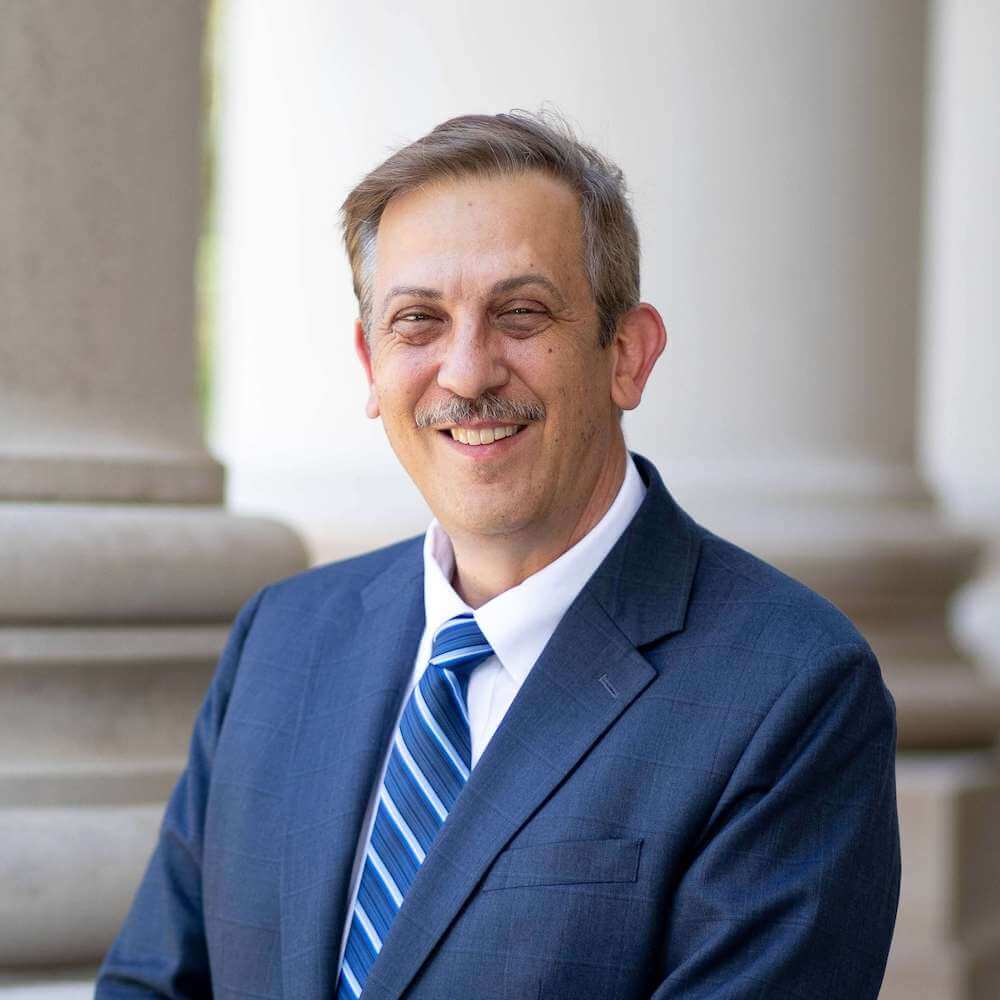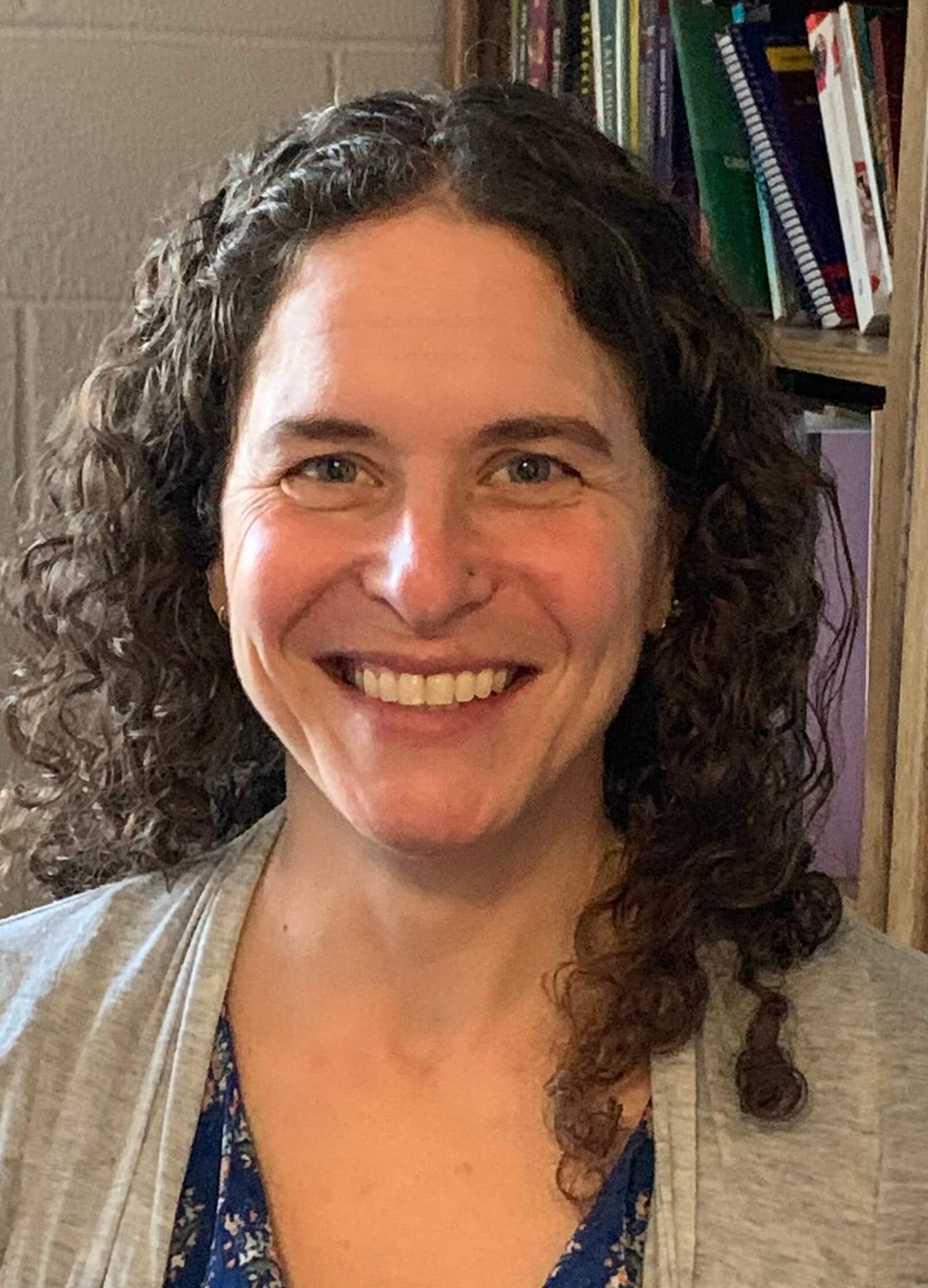Master of Arts in Anthropology
Immerse yourself in the study of people and their cultural behaviors, past and present, with Monmouth University’s Master of Arts in Anthropology degree. This comprehensive, 30-credit program is grounded in method and theory and provides extensive opportunities for fieldwork and internships in archaeology, cultural anthropology, cultural resource management, geographic information systems (GIS), historic preservation, and many other areas, giving you essential hands-on experience and preparing you for a career or doctoral study in anthropology.
Whether you’re established in a career and want to develop new skills, or you are a recent graduate ready to immerse yourself in this discipline, our dynamic graduate anthropology program gives you:
- Opportunities for hands-on learning through extensive fieldwork and research experiences.
- Renowned faculty accessible in small class settings and available for personalized mentoring and methodological training.
- Mastery of essential skills such as GIS, artifact analysis, archaeological field methods, cultural resource management, or skeletal analysis.
You may also choose to specialize your studies by pursuing an 18-credit Certificate of Archaeology within the M.A. in Anthropology program. Through collaborative research and diverse fieldwork, you will be immersed in the study of human culture and artifacts.
Application deadlines for this program are May 1 for Summer, July 15 for Fall, and December 1 for Spring. View Program Application Requirements.
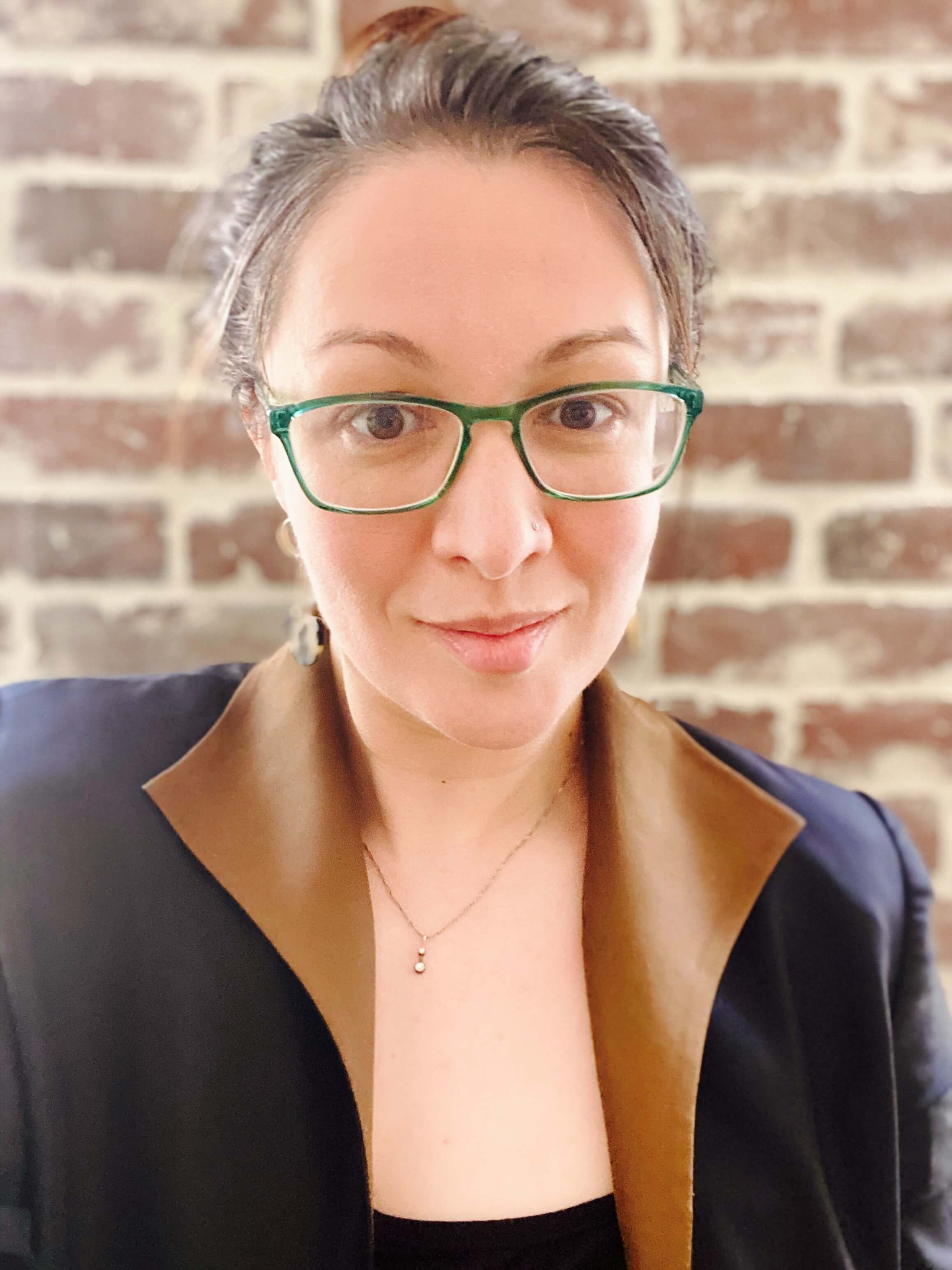
Monmouth University’s M.A. program in Anthropology is an excellent place to develop your skills as an archaeologist or anthropologist. The program combines fieldwork opportunities with an excellent theoretical grounding. Great things are happening in Monmouth’s M.A. program.
Richard Veit, Ph.D.
Associate Dean Of The School Of Humanities And Social Sciences
Thesis and Non-Thesis Tracks
If you plan on pursuing your Ph.D., Monmouth’s graduate anthropology program thesis track will give you valuable experience in choosing a topic, conducting independent research, and defending your work.
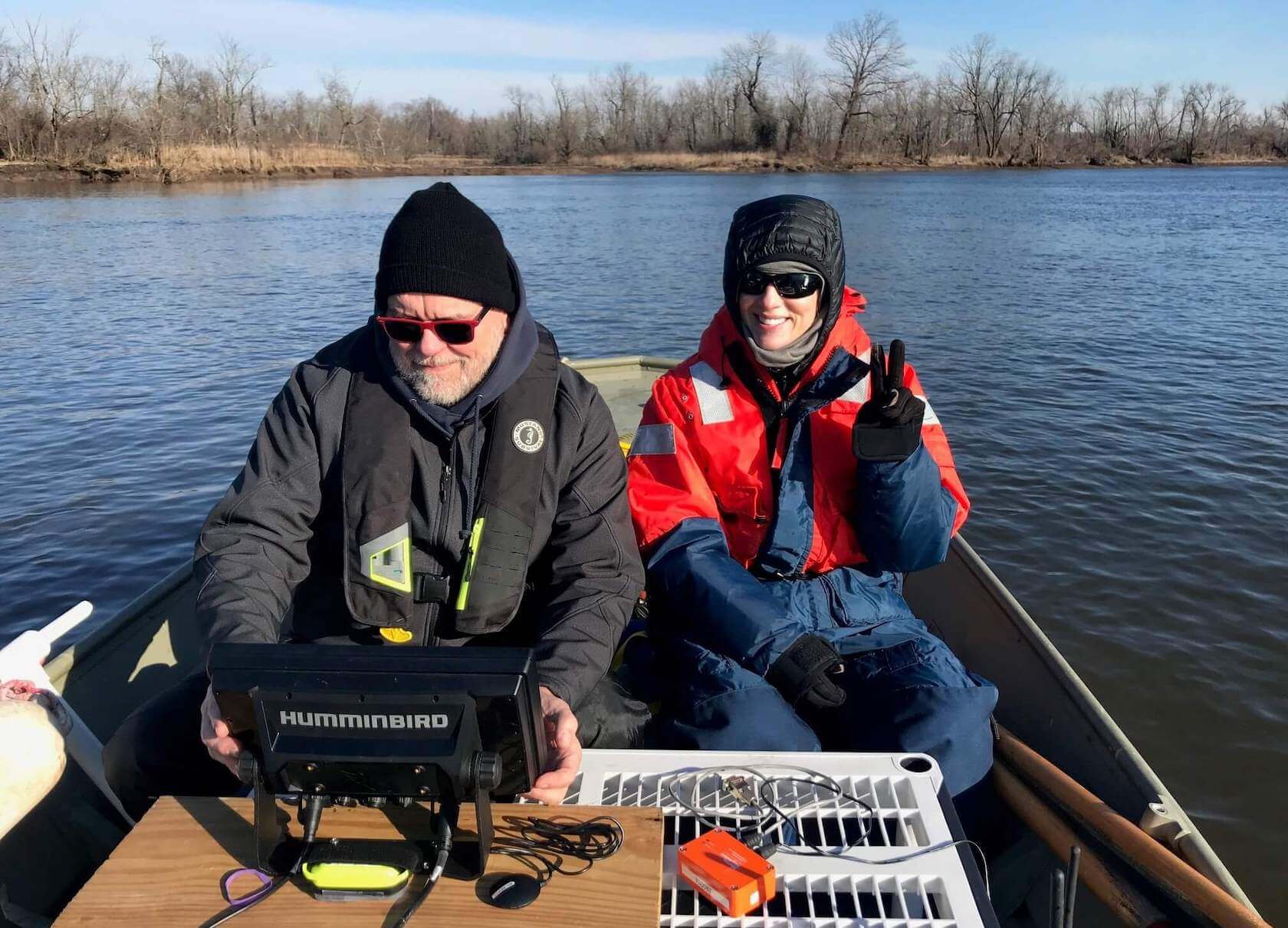
General Washington’s Lost Galley
Monmouth University master’s degree candidate, Jaclyn Urmey (right) scanned Crosswicks Creek in February as part of her thesis. Urmey interviewed regional historians and pored over historical accounts from civilians living in the area and soldiers who fought on both sides of Revolutionary War in an attempt to learn more about the vessel
Read More About This Study
“I am a historical archaeologist interested in the 18th and 19th centuries, with a geographic focus on the Middle Atlantic Region. My research focuses on military sites, monuments and commemoration, farmsteads, and institutions. I am also interested in North American prehistory. I have active grant-funded research projects in New Jersey and Jamaica. I regularly publish and present on my projects and work and enjoy engaging in collaborative research projects with students.” – Dr. Richard Veit, Interim Dean of the School Of Humanities And Social Sciences
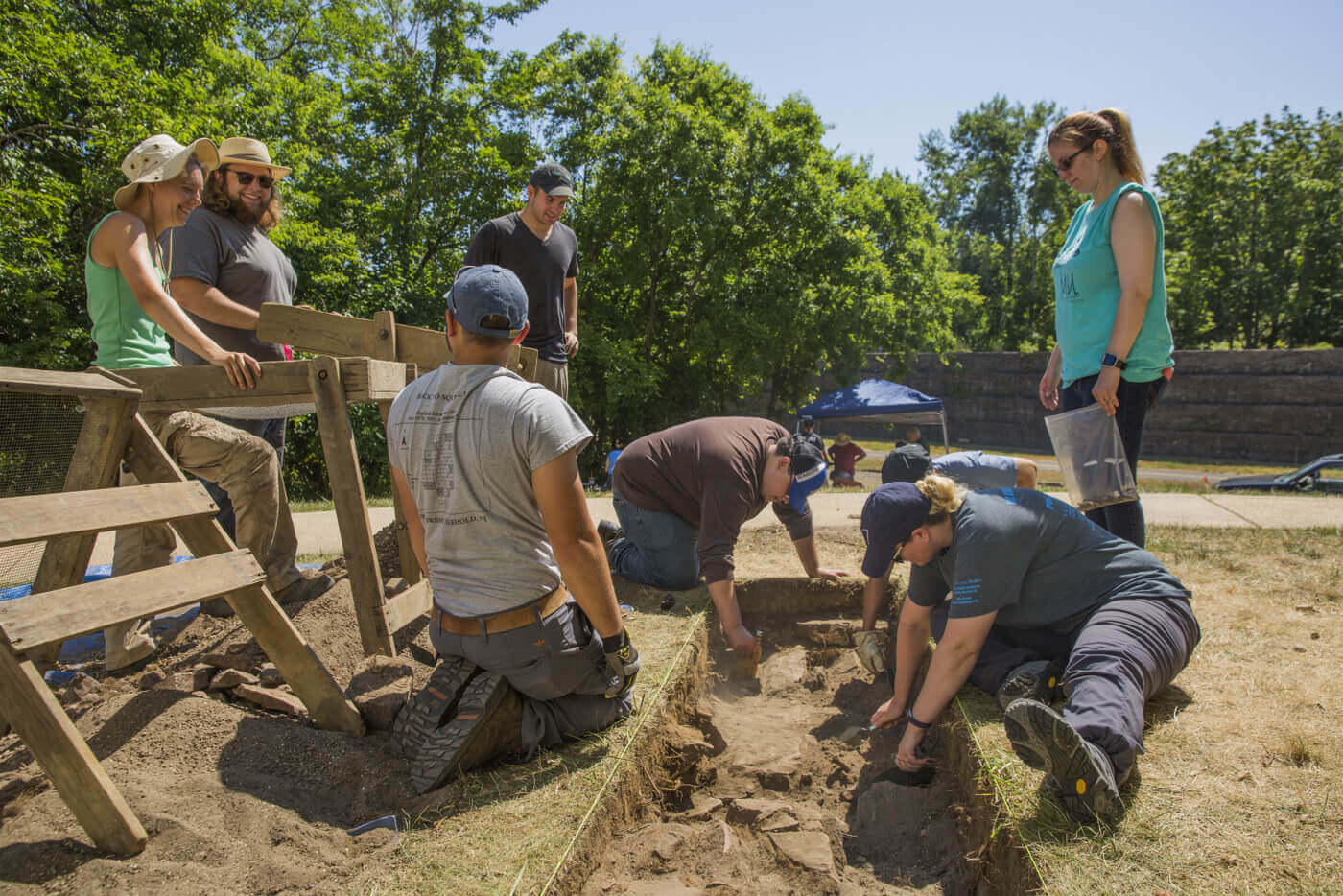
Diverse Fieldwork Opportunities
Anthropology graduate students participating in a National Park Service grant funded study of the Sandy Hook Lighthouse in New Jersey. Monmouth has relationships with state and federal agencies that provide unique research opportunities.
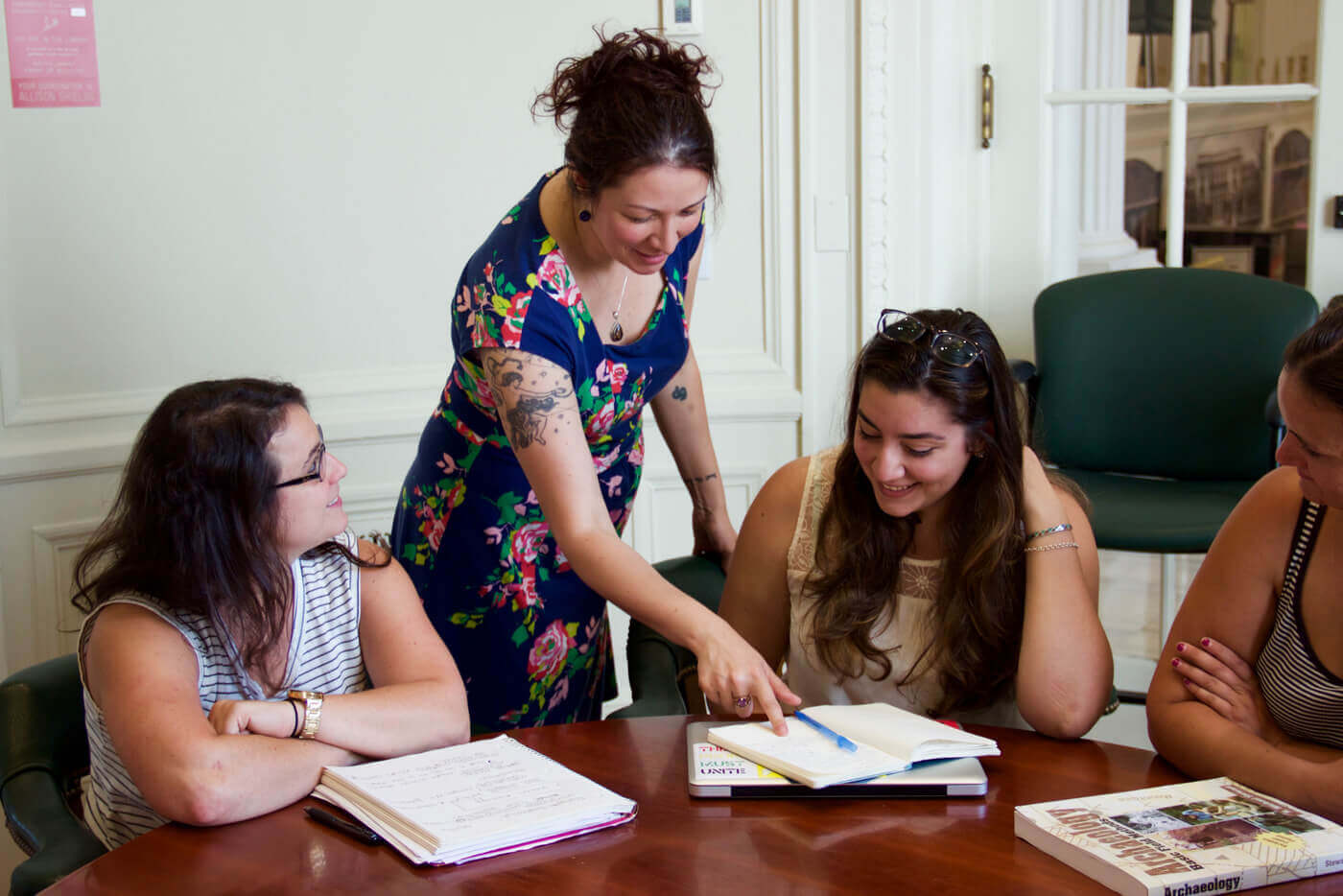
“As a cultural anthropologist with a focus on human-nature relations, I study how the social and political lives of natural resources — how they are constructed, valued, and contested. I have conducted fieldwork in Ecuador (in the Amazon and the Andes) and in Northern Russia. I am also trained as a visual anthropologist, and frequently use visual ethnographic methods in my work.” – Veronica Davidov, Ph.D, Program Director and Assistant Professor of Anthropology
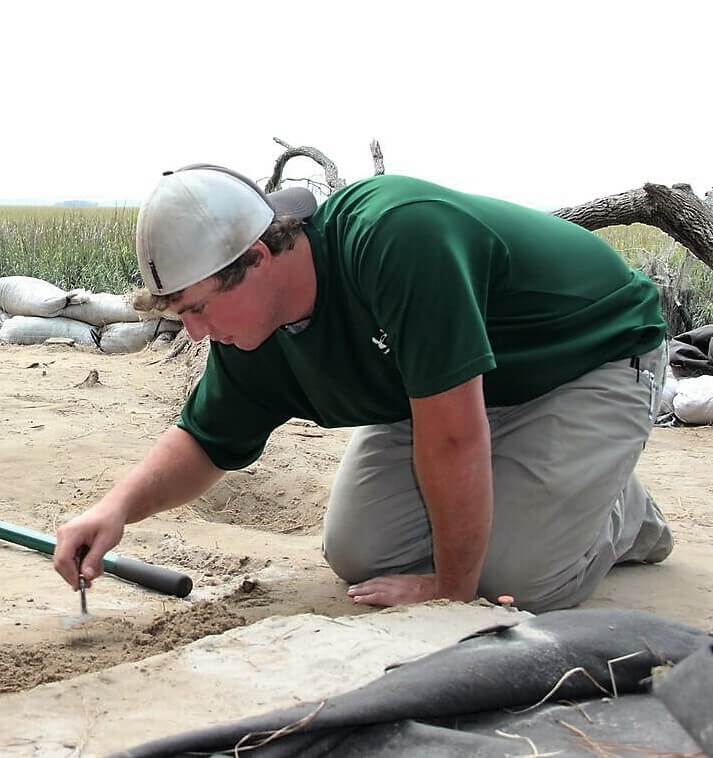
Leveraging the Program with an Internship
Monmouth University enabled me to participate in experiential learning opportunities; such as working at the American Museum of Natural history, where I had the chance to conduct hands on research excavating and analyzing artifacts from St. Catherine’s Island. This opportunity enabled me to make career-changing connections, which was only possible due to Monmouth’s program. -Matt Lobiondo, MA in Anthropology ’16
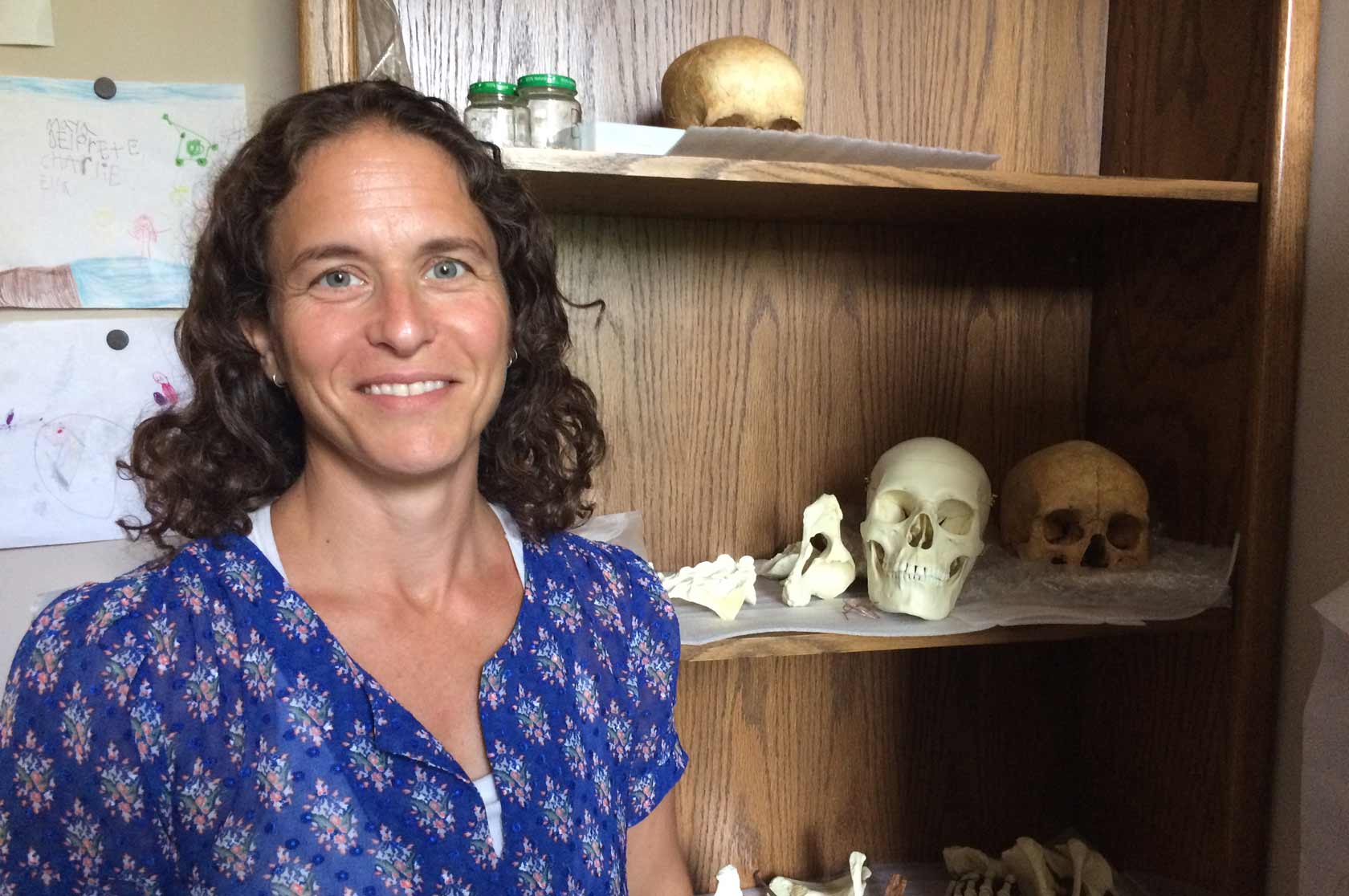
“I am a biological anthropologist who focuses on human variation, morphological plasticity and human evolution. My current research examines the relationship between environment and the skeleton, with a particular focus on the pelvis.” – Hillary DelPrete, Ph.D., Assistant Professor of Anthropology
Skill Development and Faculty Impact
In this program, you will receive the training and conceptual skills that will prepare you for careers in cultural anthropology, archaeology, cultural resource management, social policy, teaching, community engagement, and geographic information systems (GIS). Our distinguished, well-published faculty members have conducted research focusing on historic landscapes, urbanization, human-nature relations, tourism, global labor migration, and gender in America, Europe, and North America.

